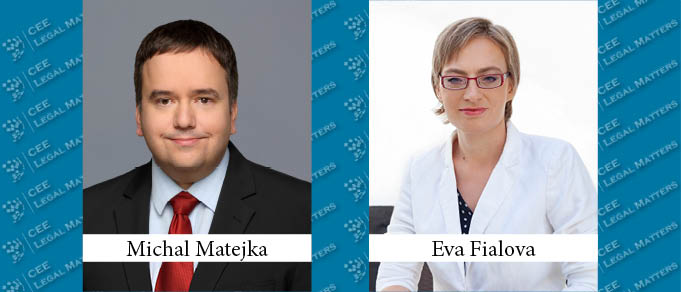At the end of September 2022, the European Commission (EC) published the long-expected proposals for legal regulation on civil liability for damage caused with the involvement of artificial intelligence (AI Liability) and liability for damage caused by a defective product (Product Liability). Whereas a proposal on AI Liability already existed (Civil liability regime for AI, published by the European Parliament in 2020), this is the first draft of an updated Product Liability.
For the TMT sector, the new European proposals are crucial. The aim of the EC is to set rules for assessing who, and under what conditions, is liable for damage caused by AI systems and AI-enabled products, software, digital services, smart devices, etc. Under current legislation, it is not clear whether software can be considered as a product and its producer is therefore liable for the damage caused by its defects. This is what the new legislation will doubtlessly establish. Another essential novelty is a reversal of the burden of proof. Currently, an injured person must prove the defect, the damage, and the causal link between the defect and the damage. The standard burden of proof is an obstacle to claiming damages, especially in the case of complex systems. The intangible nature, complexity, and sometimes even autonomy of smart devices, digital services, and software make it virtually impossible for the injured person to prove the defect, let alone the causality. Those systems are labeled as black boxes where we see only inputs and outputs but not a process in between. Even for experts, the decision of the AI is often unclear, due to the opacity of algorithms.
AI Liability Directive
The proposal was initially in the form of a regulation published by the European Parliament. The new draft issued by the EC has the form of a directive: the Directive on adapting non-contractual civil liability rules to artificial intelligence (AILD). The goal of the directive is to alleviate the burden of proof of the injured person who claims compensation from a person potentially liable for the AI system. A court may order a provider or user of the high-risk AI system, as defined by the AI Act (proposal for a Regulation laying down harmonized rules on AI), that is suspected of having caused damage to disclose evidence about the system. Failure to respond to the request will lead to the presumption of non-compliance with a duty of care. The AILD also introduces the rebuttable presumption of a causal link between the lack of compliance with a duty of care and the output produced by the AI system, or the failure of the AI system to produce an output that gave rise to the damage.
Product Liability Directive
It was already obvious a long time ago that the old Product Liability Directive 85/374/EEC leaves out new types of products linked to technological progress. The new Directive on liability for defective products (PDL) aims to adjust the liability rules to new technologies. The directive explicitly mentions software as a product, regardless of whether it is a standalone software or a component of another product. Software can be an operating system, firmware, computer application, or AI system. The PDL does not only broaden its scope in comparison with the current directive. Its other objective is to ease the burden of proof of the injured person. Unfortunately, the directive covers only the damage caused to a natural person (a consumer).
The directive defines circumstances that must be considered when assessing the defectiveness of the product, i.e., the presentation of the product, product safety requirements, the specific expectations of the end-user, or manufacture controls. As does the AILD, the PDL enables courts to request the disclosure of relevant evidence, and the defectiveness will be presumed if the manufacturer fails to comply, doesn’t comply with safety requirements, or if the damage was caused by an obvious malfunction of the product. The directive also enumerates the conditions for the manufacturer’s exemption from liability.
Czech Republic Impact
While the transposition of the PDL will change the content of Sec. 2939 of the Czech Civil Code on liability for damage caused by a product, the transposition provisions of the AILD will probably be incorporated into some general provisions of the Code. The new obligation to disclose evidence and modifications to the burden of proof will result in an amendment to the Czech Civil Procedure Code. For now, both directives are still in proposal form, so businesses, consumers, and lawyers alike will have to wait for their final version.
This article was originally published in Issue 9.10 of the CEE Legal Matters Magazine. If you would like to receive a hard copy of the magazine, you can subscribe here.


